Syria:
Israel
Syria:
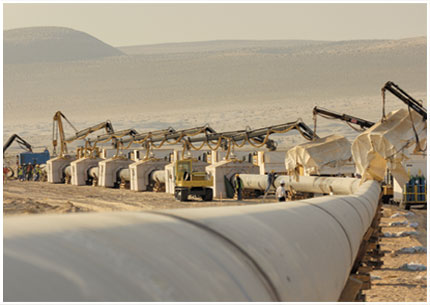 Today, CNN reports that a "Yemeni colonel and two soldiers were killed in clashes with Islamic militants in the southern province of Abyan." According to one official, "Clashes are intensifying in the city and the government is trying to put an end to the militants' control over the city."
Today, CNN reports that a "Yemeni colonel and two soldiers were killed in clashes with Islamic militants in the southern province of Abyan." According to one official, "Clashes are intensifying in the city and the government is trying to put an end to the militants' control over the city."
On Saturday Yemeni army forces killed 18 ‘terrorists’ in Zinjibar, the capital of the southern Abyan province, and another three in Lawdar, a second provincial city, according to Reuters. In a text message from the Yemeni Defense Ministry, officials said that the army had also destroyed a weapons and ammunition cache in Zinjibar.
Yemeni President Saleh sustained serious burns and shrapnel injuries in an attack on his presidential complex in Sanaa on June 3. Saleh was transported to Saudi Arabia and is “in stable condition and recovering,” the Yemen’s ambassador to Britain told Reuters. But, according to an informed source, identified by Agence-France Presse as a Yemeni expatriate in Riyadh, the health of Yemeni President Ali Abdullah Saleh was 'bad.' (Source: Al Arabiya).
Colonel mustard in the library with the candlestick
While the government has blamed the al-Ahmar tribe for the attack, Al Jazeera reports that some residents in Sanaa suspect that the raid could actually be orchestrated by the president himself.
The situation continues to get worse in Yemen. The US, which has been playing what The Nation’s Jeremy Scahill calls a “ dangerous game,” just days ago urged US citizens to depart Yemen “while commercial transportation is still available.” State Department diplomats have fled the country in the past few days as well.
The acknowledgment of US reaction to the increased violence is not to diminish the struggle of the peaceful revolution in Yemen but to note that the US has used this country as a laboratory for its military experiments in the war on terror and now this is what their "ally" or puppet Ali Abdullah Saleh is doing to the people of Yemen. The lack of US pressure on Saleh to resign has allowed the conflict to escalate.
WL Central is featuring the amazing work of the Yemen Rights Monitor blog that has been tracking the revolution and violence in Yemen since February. We hope you will support their effort to bring the world the truth of what is happening in Yemen and share this widely, especially if you are interested in what is unfolding in Yemen.
Republished with permission from @al_masani and @Ronaldo_Yemen, here’s the latest update.
*
May 29th - Taiz under attack (graphic photos)
French News Agency: Zanjibar in Abyan falls in the hands of Al-Qaeda.
Witness: Armed thugs are gathering in Baghdad St near Dr. Abdulqader Al-Mutawakil Hospital.The humanitairan situation is very bad in Hasaba region, the bombings that took place have made many families suffer. There will be some fundraising events to help them in Yemen, donations are accepted as well.
Armed men in civilian clothes are extensively gathering in Omar Al-Mokhtar School in Sheraton near the U.S Embassy
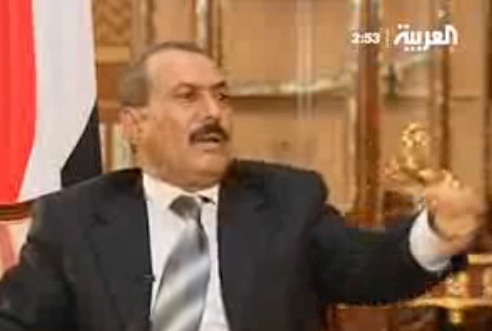 President Ali Abdullah Saleh of Yemen was to sign a Gulf Cooperation Council-sponsored agreement to indicate his commitment to stepping down from the presidency in 30 days on Sunday. However, he broke his word and in the past few days violence and tensions in Yemen have escalated significantly.
President Ali Abdullah Saleh of Yemen was to sign a Gulf Cooperation Council-sponsored agreement to indicate his commitment to stepping down from the presidency in 30 days on Sunday. However, he broke his word and in the past few days violence and tensions in Yemen have escalated significantly.
Battles have broken out over the country’s Interior Ministry. Gregory Johnsen (and others who have been reporting on Yemen) reported the Ministry was shelled by tribal forces and on fire.
Mareb Press reported renewed clashes between security forces and Hashid tribesmen. Heavy artillery was used.
Tom Finn, a reporter in Yemen writing for The Guardian, reported in Hasaba the Saba office was hit twice by missiles. The area turned into a war zone with the street deserted and machine gun and mortar fire going off.
Finn also writes, in his latest article, explains “fierce gun battles” broke out when security forces were met with “guards from the country’s most powerful tribal federation whose leader is backing protesters’ demands for an end” Saleh’s 33-year rule.
Missiles attacked the al-Ahmar house and the mediation committee. This is likely because the Ministry of Defense in Yemen contends the “al-Ahmar sons and their gang” no longer are constructively participating in mediation efforts and are now participating in violence against “government installations and citizens’ homes.”
Fears of civil war are escalating. Concern about what the impact on the protest movement will be if war breaks out is growing too.
Yemenis tweeting report electricity being shut down in areas of Yemen and then hours later report it coming back on. But, electricity is lost again hours later.
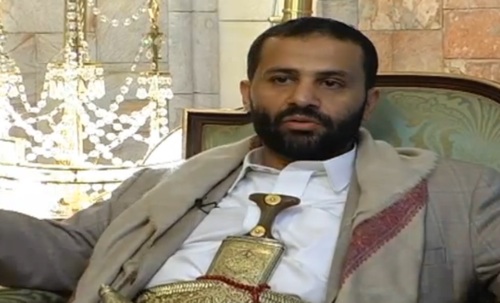 The Washington Post published a cable days ago on Hamid al-Ahmar, Islah Party leader, well-known businessman and de facto leader of Hashid, Yemen’s largest tribal confederation. The cable suggests that al-Ahmar aimed to remove President Ali Abdullah Saleh from power unless he “guaranteed” there would be “fairness” in the 2011 parliamentary elections, a unity government formed with movement leaders from South Yemen, and removed his relatives from power by December 2009.
The Washington Post published a cable days ago on Hamid al-Ahmar, Islah Party leader, well-known businessman and de facto leader of Hashid, Yemen’s largest tribal confederation. The cable suggests that al-Ahmar aimed to remove President Ali Abdullah Saleh from power unless he “guaranteed” there would be “fairness” in the 2011 parliamentary elections, a unity government formed with movement leaders from South Yemen, and removed his relatives from power by December 2009.
The cable from August 31, 2009, indicates Ahmar had plans for demonstrations that would rock Saleh’s regime:
Absent this fundamental shift in Saleh’s governance of the country, Ahmar will begin organizing anti-regime demonstrations in "every single governorate," modeled after the 1998 protests that helped topple Indonesian President Suharto. "We cannot copy the Indonesians exactly, but the idea is controlled chaos." Ahmar said he had conveyed his ultimatum to Saleh through Ahmar’s brothers (NFI) in early August, but had not yet received a response from the president or his inner circle.
Ahmar believes the country would be thrown into “complete chaos” without the support of the Saudi leadership and elements of Yemeni military particularly MG Ali Muhsin. Muhsin has joined the opposition and recently indicated support for a Gulf Cooperation Council initiative that would transfer power to the vice president. And, Saudi Arabia is playing a role as a key mediator in the conflict that continues to intensify in Yemen.
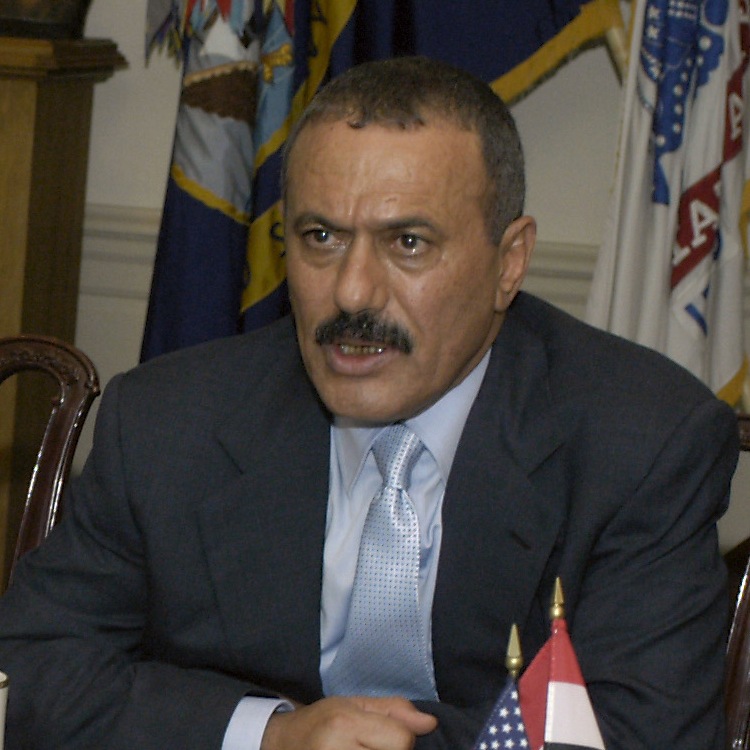 By now, those following the story closely are aware that the position of the US on President Ali Abdullah Saleh’s regime has shifted greatly. A near-180 has taken place.
By now, those following the story closely are aware that the position of the US on President Ali Abdullah Saleh’s regime has shifted greatly. A near-180 has taken place.
As announced last evening, the New York Times reported the “United States, which long supported Yemen's president, even in the face of recent widespread protests, has now quietly shifted positions and has concluded that he is unlikely to bring about the required reforms and must be eased out of office, according to American and Yemeni officials.”
A news alert from the newspaper continued, “The American position began to shift in the past week, administration officials said. While American officials have not publicly pressed President Ali Abdullah Saleh to go, they have told allies and some reporters that they now view his hold on office as untenable, and they believe he should leave.”
Since the announcement, suggestions are now floating around that Saleh is buckling down. Well aware that he has lost much of the US’ support, his regime’s police and security forces are stepping in to suppress protests that are, in addition to the increased violence and instability, largely to blame for the US shift.
 Cables recently posted by the Spanish news organization El Pais provide more details on the manic and overbearing Yemen President Ali Abdullah Saleh. The cables appear just as Saleh seems to be closer to transferring control of Yemen to another leader, who can diffuse the growing revolt against his regime and as The Nation’s Jeremy Scahill, one American journalist who has not shied away from using the WikiLeaks cables to inform his work, publishes a major story on what is at stake for the US in Yemen.
Cables recently posted by the Spanish news organization El Pais provide more details on the manic and overbearing Yemen President Ali Abdullah Saleh. The cables appear just as Saleh seems to be closer to transferring control of Yemen to another leader, who can diffuse the growing revolt against his regime and as The Nation’s Jeremy Scahill, one American journalist who has not shied away from using the WikiLeaks cables to inform his work, publishes a major story on what is at stake for the US in Yemen.
Over the weekend, widespread rumors suggested Saleh would be stepping down. But, by Sunday, March 27, Saleh’s zealous hold on power only tightened in the face of this notion that he would no longer be ruling Yemen. On the American Sunday morning talk show “Meet the Press,” US Secretary of Defense Robert Gates said his fall or replacement by a weaker leader would be “a real problem” for US counterterrorism operations, pretty much solidifying the fact that Saleh would not be leaving yet.
A cable from August 31, 2009, illuminates a leader, who has grown increasingly unstable in recent years. One Member of Parliament explains to then-US Ambassador to Yemen Stephen Seche how the country has serious problems but when he talks about them, Saleh gets angry and tells him to go.
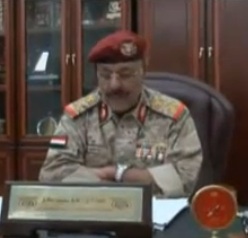 Saudi pilots tasked with striking Houthis in northern Yemen aborted the mission after realizing the site they were being asked to hit was the headquarters of General Ali Mohsen Al-Ahmar, a Yemeni northern area commander and known political opponent of Saleh. That’s what a cable released by WikiLeaks sent out from the US Embassy in Riyadh on February 7, 2010 reads.
Saudi pilots tasked with striking Houthis in northern Yemen aborted the mission after realizing the site they were being asked to hit was the headquarters of General Ali Mohsen Al-Ahmar, a Yemeni northern area commander and known political opponent of Saleh. That’s what a cable released by WikiLeaks sent out from the US Embassy in Riyadh on February 7, 2010 reads.
In recent days, Al-Ahmar has become a significant player in the unfolding events in Yemen. About a week ago he declared that he was going to join the revolution. Just this past Sunday, according to Agence France Presse, he “vowed to bring about Saleh’s overthrow.”
The revelation comes from a meeting that took place between Ambassador James B. Smith and Assistant Minister of Defense and Aviation Prince Khaled bin Sultan. Ambassador Smith met with Prince Khaled to express concerns about the “sharing” of US government satellite imagery with Saudi Arabia after evidence of Saudi aircraft strikes on civilian targets. Particularly, Ambassador Smith expressed concern over “an apparent Saudi air strike on a building that the US believed to be a Yemeni medical clinic.” Prince Khaled is shown a satellite image of the building.
WL Central continues its updates on Yemen, with new items added at the top. All times are based off of Sanaa time in Yemen. You can contact me on Twitter @kgosztola or by email at kgosztola@hotmail.com.
Current time and date in Sanaa:
Saturday, March 26
9:12 PM Sanaa Time
Hours ago, AFP reported Saleh said his regime is "as firm as mountains." Saleh doesn't appear to want the world to think he is leaving today.
8:46 PM Sanaa Time
This just in from the Associated Press: "A spokesman for embattled Yemeni President Ali Abdullah Saleh says talks with the opposition have made no progress toward a deal on the president's possible resignation."
7:42 PM Sanaa Time
Yemenis are anxiously awaiting news on whether President Saleh will step down or not today. The Twitter-sphere has a few tweets that have become top tweets. They each indicate that Saleh will likely be leaving in the next couple hours. WL Central will stay tuned and bring you the latest developments.
Yemen News Agency (SABA) reports caretaker Foreign Minister Abu Bakr al-Qirbi denies media reports suggesting a transition of power will happen today:
"My statement to Reuters was reported partly and inaccurately, al-Qirbi told Saba.
I have said, in an interview with Reuters, that I pin hopes on coming to an agreement on transition of power today before tomorrow based on the five points the Joint Meeting Parties (JMPs) have previously offered and the President Ali Abdullah Saleh has announced his approval to, the Caretaker Foreign Minister said.
The following is a top tweet right now from Al Arabiya English:
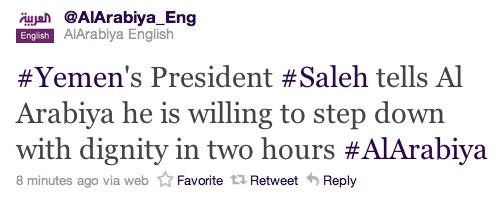
But, 22 year-old Yemeni writer, activist and community worker @imothanaYemen tweets, "The Yemeni president is NOT leaving in 2 hours, the statement was taken out of context from a long Alarabiya interview #Yemen #Saleh"
In the meantime, some of the latest new making the rounds includes:
@alguneid tweets, "IMP NEWS: A Qatina man killed n sit-in.Hamdan tribe,Occupied military reception camp.Rpblcn Guards sent, but blocked by Arhab tribe #Yemen" and "IMP NEWS:From "#TAIZ &elsewhere. #Saleh invited shaikhs&digniteries from all #Yemen to visit him in #Sanaa. Rebound&counterattack #Yemen #yf" and "IMP NEWS: YASIN NOMAN,together went with Feierstien #USA ambsdr to house of Abdrabbu hadi,for meeting.Told, he is UNAVAILABLE ! #Yemen #yf" [All in the past hour.]
Yemen Online reports Saleh has called on “young people” to form their own political party. Saleh wants them to not be a “vehicle of the weak, malevolent and sick souls, who he said want to destroy everything in the homeland.”
Yemen Online also reports that Turkey has declared a Yemen-bound pistol shipment illegal. The shipment was intercepted in Dubai. Sixteen thousand Turkish-made pistols were on their way to Saada province in northern Yemen. Turkish officials said the shipment was not properly authorized.
Just over a week ago, Yemen experienced a bloody massacre of its people. Project Yemen chronicles the day on March 18 with tweets sent throughout the day.
Jeb Boone writes on the prospect of civil war in Yemen.
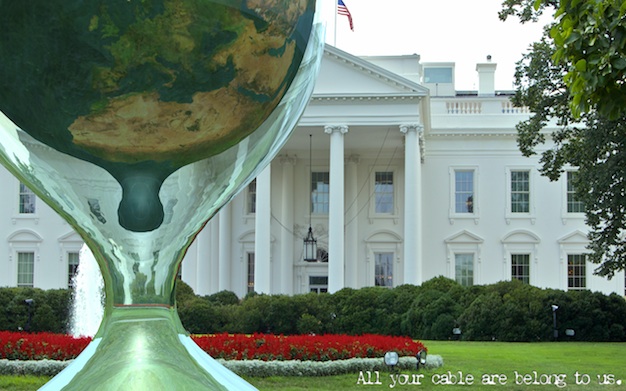 The Telegraph: Qatar asked Shell and ExxonMobil for donations
The Telegraph: Qatar asked Shell and ExxonMobil for donations
"Qatar wrote to major international oil companies, including Royal Dutch Shell and ExxonMobil, to demand up to $1.7bn (£1bn) in donations for a medical centre, according to leaked diplomatic cables.
The Middle Eastern nation is one of the world's richest countries per capita on account of its oil and gas wealth. However, it caused surprise by approaching a number of companies that work with Qatar Petroleum with a cash call in 2007. According to the Wikileaks documents, letters signed by Abdullah al-Attiyah, the deputy prime minister, told each company how much they were expected to donate."
El País: Periodismo a sangre y fuego en Yemen (Journalism, blood and fire in Yemen)
 Next: American official says PDP is not a party
Next: American official says PDP is not a party
"The United States does not consider the ruling Peoples’ Democratic Party a political party, a US diplomatic cable leaked to the whistleblowing site, Wikileaks, and made exclusively available to NEXT has shown.
Charge d’ affaires of the US embassy in Nigeria, Lisa Piascik, in a dispatch dated October 19, 2007, informed Washington that despite its labelling as a political party, the PDP did not meet “the common western understanding” of a political party."
The Guardian: WikiLeaks cable links defecting Yemeni general to smuggling rackets
"US diplomatic cables reveal powerful army chief behind moves to oust president is seen as unwelcome successor to Saleh.
The Yemeni general who has thrown his weight behind moves to oust President Ali Abdullah Saleh is a powerful and shadowy figure who has amassed a fortune in arms and fuel smuggling rackets, according to US diplomatic cables released by WikiLeaks."
(Image Credit: Dali Rău)
WL Central continues its updates on Yemen, with new items added at the top. All times are based off of Sanaa time in Yemen. You can contact me on Twitter @kgosztola or by email at kgosztola@hotmail.com.
Current time and date in Sanaa:
Tuesday, March 15
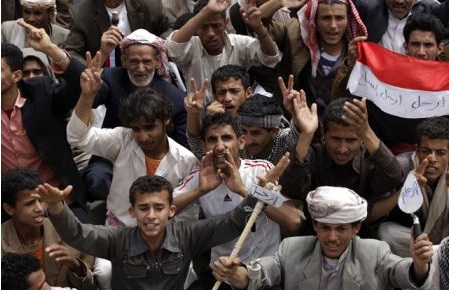 9:22 PM Journalist Iona Craig files this firsthand report on covering the uprising in Yemen Craig’s report details the worsening conditions for not just the people of Yemen but also journalists:
9:22 PM Journalist Iona Craig files this firsthand report on covering the uprising in Yemen Craig’s report details the worsening conditions for not just the people of Yemen but also journalists:
I crept home to my bed, exhausted after two busy days of covering the sudden upsurge of violence in the capital. Unlike the previous two mornings my wake up call was not an early morning text message telling of gunfire, attacks or impending violence from activists at the university encampment, now the centre stage of the anti-government protests, but this time came from friend and fellow journalist Laura Kasinof.
Armed police had raided the house I’d left just a few hours earlier, arresting four journalist friends. During the next few frantic calls to contacts with friends in high places their location remained a mystery. The political security and police denied they had them and still hours later the British embassy had no idea where they were being held. Then reports came through that they were at the Immigration Authority, but would be released and given a few days to sort out their paper work. Moments later these hopes were dashed when they were spotted at the airport.
The journalists deported were: “Oliver Holmes (Wall Street Journal, Time) Portia Walker (Daily Telegraph, Washington Post) Haley Sweetland Edwards who had returned to Yemen for a few weeks, (Los Angeles Times, Atlantic) and Joshua Maricich, a climbing enthusiast, photographer and researcher who had recently written a government supported book on Yemen.”
 UPDATE: Unedited podcast is posted.
UPDATE: Unedited podcast is posted.
This week’s guest is Debra Sweet. She is the Director of World Can't Wait, initiated in 2005 to "drive out the Bush regime" by repudiating its program, forcing it from office through a mass, independent movement and reversing the direction it had launched. Based in New York City, she leads World Can't Wait in its continuing efforts to stop the crimes of our government, including the unjust occupations of Iraq and Afghanistan and the torture and detention codes, as well as reversing the fascist direction of U.S. society, from the surveillance state to the criminalization of abortion and immigrants.
Her writing can be read here. Her latest piece is “Nakedness, Justice and Bradley Manning.”
To mark the eighth anniversary of the Iraq War, Sweet discusses some of the revelations that have come from WikiLeaks on the Iraq War thanks to Cablegate and the Iraq War Logs and the "Collateral Murder" video.
Sweet addresses how WikiLeaks revelations on the wars are fueling antiwar resistance in America. She will highlight upcoming actions on March 19 and 20 in the United States to oppose ongoing US wars and occupations and to support Bradley Manning, the alleged whistleblower being held at Quantico Marine Brig in Virginia.
Following Sweet’s interview, some time was spent doing a roundup on some of the past week’s news related to WikiLeaks. The milestone that was reached this week, the 100th Day of Cablegate, was recounted.
To listen to the podcast, click play on the widget below. Or, go to CMN News.
WL Central will be updating news on Yemen, with new items added at the top. All times are based off of Sanaa time in Yemen. You can contact me on Twitter @kgosztola or by email at kgosztola@hotmail.com.
Current time and date in Sanaa:
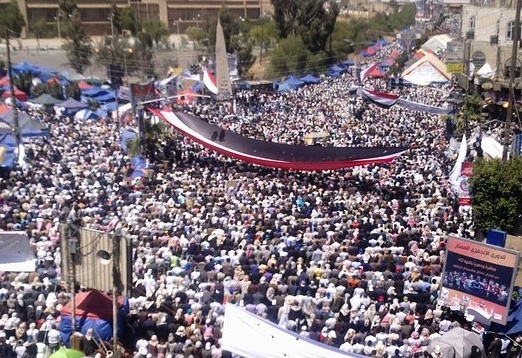
FRIDAY, March 4
Many videos and pictures from the day here on this Facebook page, which has been monitoring the Yemeni revolution.
Jane Novak has posted a statement of solidarity from people in Saada, Amran, and al Jawf, an organization that intends to move to overthrow Saleh The statement makes clear how the people plan to continue to push for Saleh to step down:
WL Central will be updating news on Yemen, with new items added at the top. All times are based off of Sanaa time in Yemen. You can contact me on Twitter @kgosztola or by email at kgosztola@hotmail.com.
Current time and date in Sanaa:
FRIDAY, March 4
Video of protesters out in Yemen demonstrating The number of people protesting swelled and was larger than previous days in the uprising.
Jane Novak has posted a statement of solidarity from people in Saada, Amran, and al Jawf, an organization that intends to move to overthrow Saleh The statement makes clear how the people plan to continue to push for Saleh to step down:
We affirm our support and solidarity with members of the Yemeni people to overthrow the corrupt regime, and we stress the following: http://armiesofliberation.com/archives/2011/03/04/saada-amran-al-jawf-or...
* Moved that this move is within the broad popular marches and this is the cohesion and harmony with the position of people in all governorates of Yemen.

The third episode of this weekly podcast, which looks at stories related to WikiLeaks from the past week, featured guest Michael K. Busch, who teaches international relations at the City College of New York, where he is also program coordinator at the Colin Powell Center for Policy Studies. He has posted on blogs on released cables on WikiBlogged, and he is listed as a resource in the back of Greg Mitchell's recently published book, "Age of WikiLeaks," which you can purchase in print on Blurb.com or in e-book form off of Amazon. [Follow him on Twitter @michaelkbusch]
The program for this week's show was dedicated to protests and violence in the Middle East and North Africa (MENA). The show will provide updates on what is happening in the region and discuss some released WikiLeaks cables that provide context for what is happening.
A recent cable, from 2010, announces: “Jordan continues to face some of the most troubling challenges of King Abdullah's 10-year reign.¨ These problems are a deficit of USD 1.43 billion, unstable regional politics, originated from the continuous privilege of rural communities in the East Bank over urban communities with larger Palestinian populations, rigged elections and unequal political rights (09AMMAN813). The cables also reveal that this inequality is created by the government and pushed through by force: “The King's economic and political changes face domestic opposition from tribal leaders and an array of entrenched East Bank interests. The latter include many in the military, security services, and bureaucracy, who enjoy a disproportionate share of the current system”. (10AMMAN329).
According Amman News, Secretary General of the Popular Unity Party Saeed Dhiyab stated that “the clashes were instigated by a group of hooligans, and charged that security forces condoned the violence by not intervening to break out the fights”. The current unrest in Jordan seems to be -once again-, the response of the population towards a whole history of repression and injustice practiced by its government. The clashes started on the 18th of February in the capital, Amman, between protestors calling for political and economic reform, and a group for "Loyalty and Belonging" to King Abdullah II. The clash produced an unconfirmed number of victims. Foreign journalists reported violent threats to confiscate their cameras and the media is still gagged by the government.
Yemen protests started in mid January with a self immolation and the arrest and release of Yemeni activist Tawakel Karman, and they have not really stopped since. A Day of Rage was organized for February 3 but tens of thousands were in the streets on January 27 as well as many smaller protests, throughout the time period. The last five days have seen a huge increase in the numbers in the streets, as well as the violence directed at them. According to Human Rights Watch, president Ali Abdallah Saleh’s security forces have attacked demonstrators, activists, lawyers, and journalists in Yemen capital city Sanaa without justification. An estimated 3000 people protested from Sana'a University, clashing with police and pro-Saleh demonstators using batons, rocks, and occasionally knives. Today in Taiz, over 2500 people are refusing to leave and are forming committees and buying tents to continue occupying their protests grounds.
The videos below show the current size and emotion of some of the protests.
January 27, 2011
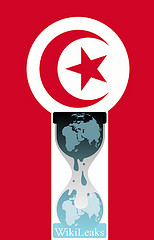 For those in countries that are working to topple brutal and oppressive regimes, there is a power that WikiLeaks cables have, one that can be tremendously beneficial. Cables from Tunisia, Sudan, Yemen, Syria, Algeria, Bahrain, Libya, Jordan, and Saudi Arabia all illuminate why the people of those countries would rise up against their governments. They compel people to acknowledge the magnitude of abuses and suffering that the people have been experiencing under autocratic regimes.
For those in countries that are working to topple brutal and oppressive regimes, there is a power that WikiLeaks cables have, one that can be tremendously beneficial. Cables from Tunisia, Sudan, Yemen, Syria, Algeria, Bahrain, Libya, Jordan, and Saudi Arabia all illuminate why the people of those countries would rise up against their governments. They compel people to acknowledge the magnitude of abuses and suffering that the people have been experiencing under autocratic regimes.
The planned “Day of Rage” protests being met with security forces and violence in Algeria, Iran and Yemen can be further understood thanks to the cables. The clashes in Bahrain and the brewing unrest in Syria can be illuminated because of the analysis from US diplomats in the cables. And, what continues to unfold in Egypt and Tunisia and inspire people in countries like Iraq, Jordan, Kuwait, Saudi Arabia, Sudan and Libya, whose people intend to hold their own “Day of Rage” on February 17.
Theme by Danetsoft and Danang Probo Sayekti inspired by Maksimer